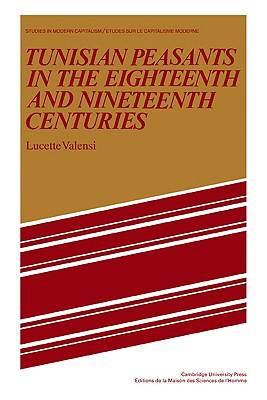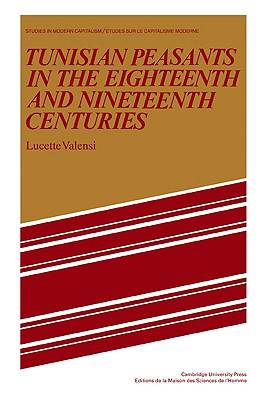
- Afhalen na 1 uur in een winkel met voorraad
- Gratis thuislevering in België vanaf € 30
- Ruim aanbod met 7 miljoen producten
- Afhalen na 1 uur in een winkel met voorraad
- Gratis thuislevering in België vanaf € 30
- Ruim aanbod met 7 miljoen producten
Zoeken
Tunisian Peasants in the Eighteenth and Nineteenth Centuries
Lucette Valensi
€ 64,95
+ 129 punten
Uitvoering
Omschrijving
An historian of the Annales school, Lucette Valensi blends the methods of history and anthropology to portray the Tunisian countryside in the eighteenth and nineteenth centuries, which has been previously little-studied. She analyses the nomadic tribes and the sedentary peasants, discussing their social organisation, their economic activity, and their cultural practices. She also explores the changes that affected both the peasantry and the Tunisian state in the nineteenth century, showing how the country's incorporation into the capitalist world economy led to social unrest, and eventually to the general rebellion of 1864 that precipitated the establishment of a French protectorate, thus placing Tunisia in a role of dependence and heralding underdevelopment.
Specificaties
Betrokkenen
- Auteur(s):
- Uitgeverij:
Inhoud
- Aantal bladzijden:
- 308
- Taal:
- Engels
- Reeks:
Eigenschappen
- Productcode (EAN):
- 9780521109017
- Verschijningsdatum:
- 29/06/2009
- Uitvoering:
- Paperback
- Formaat:
- Trade paperback (VS)
- Afmetingen:
- 152 mm x 229 mm
- Gewicht:
- 453 g

Alleen bij Standaard Boekhandel
+ 129 punten op je klantenkaart van Standaard Boekhandel
Beoordelingen
We publiceren alleen reviews die voldoen aan de voorwaarden voor reviews. Bekijk onze voorwaarden voor reviews.











